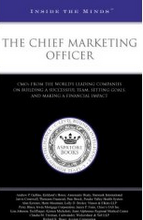If we here at the Garage haven’t said it aloud just yet, it should be a given that financial services advertising is an arena fraught with peril these days. Do you advertise at all? And, if so, what message do you communicate that won't end up sounding like a punch line? Consider for a moment that Lehman Brothers won a Best Advertising Campaign of the Year in 2007 and Bear Stearns’ tagline was “Risk Managed. Value Added.”
You can’t make this stuff up.
Here’s a Bear Stearns stress ball for sale on eBay that carries the line “Little Things. Big Impacts.” (Ha ha ha! Thank youuuu! Please remember to pay your waitresses!)
Unfortunately, Bessemer Trust appears to be playing the dark comedy angle this week.
Henry Phipps founded Bessemer over 100 years ago to manage his family’s proceeds from the sale of Carnegie Steel. Today, the firm’s website states that Bessemer manages in excess of $50B in assets for over 1,900 families, and that its “history of serving wealthy families affords us an understanding of the issues that matter to you.”
It would be safe to assume that some of those “issues” might include the scary guy in the room these days, Economic Meltdown, and his accompanying stooges, Uncertainty, Irresponsibility, Misrepresentation and Anxiety. A financial firm that chooses to advertise in this climate must reflect that it understands these realities.
So imagine my surprise when I saw Bessemer’s ad in The Wall Street Journal: a half-page ad with huge type, saying “We invest your money right along with ours. Needless to say, you benefit from some very careful thinking.”
 My reaction: “They’re joking. Bessemer is an honorable and discreet company. Why would they get down in the mud with other companies that followed this same practice and lost their investors billions of dollars?” Investing your own funds is no guarantee of anything – it’s not a guarantee of wealth, intelligence, integrity or the “alignment of interest” touted in Bessemer’s ad. Lots of categories currently in the hot seat invest their own funds: venture capital firms, investment banks, mortgage companies… Enron invested its own funds alongside clients, for Pete's sake!
My reaction: “They’re joking. Bessemer is an honorable and discreet company. Why would they get down in the mud with other companies that followed this same practice and lost their investors billions of dollars?” Investing your own funds is no guarantee of anything – it’s not a guarantee of wealth, intelligence, integrity or the “alignment of interest” touted in Bessemer’s ad. Lots of categories currently in the hot seat invest their own funds: venture capital firms, investment banks, mortgage companies… Enron invested its own funds alongside clients, for Pete's sake!The ad's small type does actually call out some positive characteristics and benefits of working with Bessemer “as the credit crisis loomed.” Unfortunately, I am fairly certain that no one who saw this ad ever read that far.
Does Bessemer have an executive tuned in to the reputation and trust zeitgeist today? If not, it needs one; if so, we would suggest a bit of retuning. Contact us here at the Garage: we’ll be gentle.
A version of this post was originally published at www.stephaniefiermanmarketingdaily.com.









